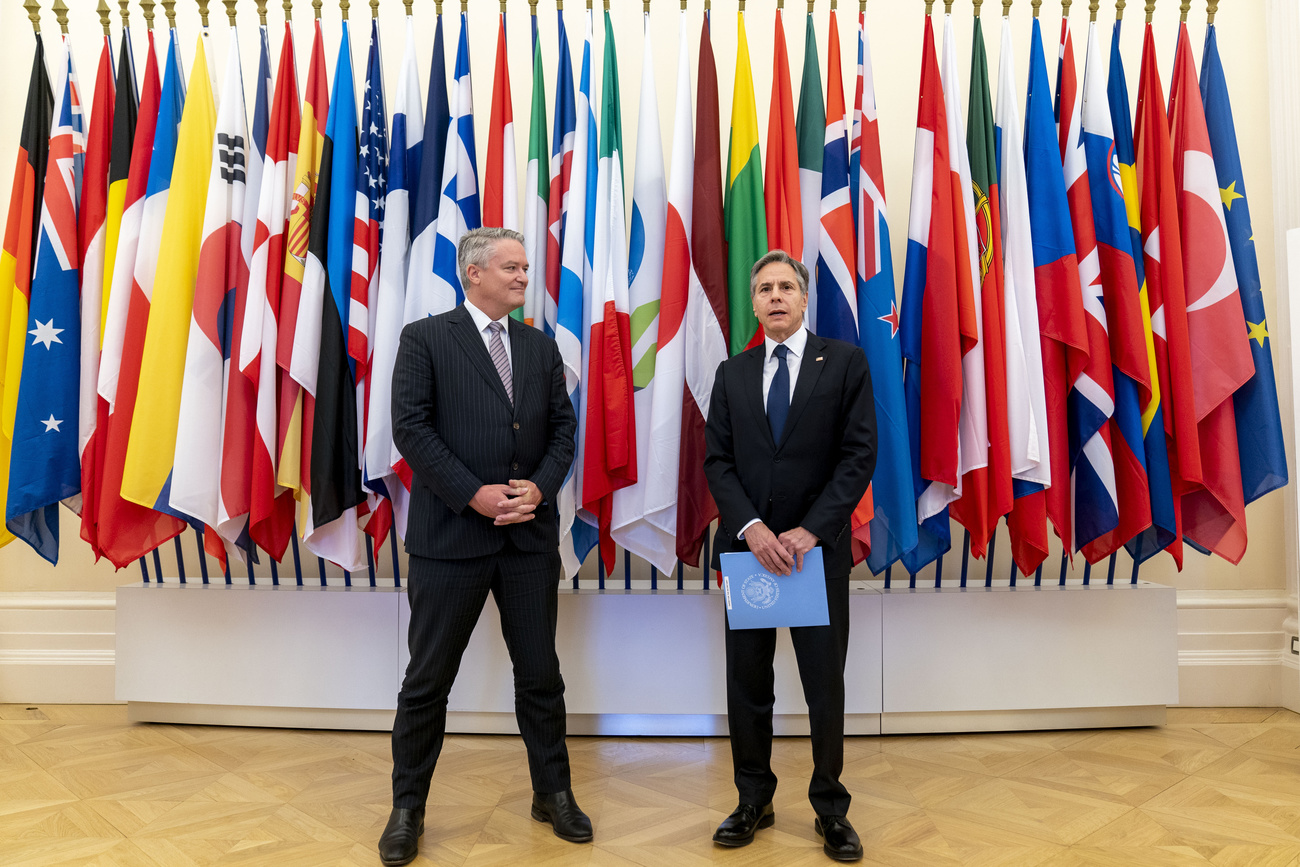Tax avoidance is a children’s rights issue
The United Nations Committee on the Rights of the Child should ask Switzerland to report the extraterritorial impact of its tax policies, argues international law lecturer Alexandra Dufresne.
The response to the Pandora, Paradise and Panama Papers has tended to focus on the threat that tax avoidance and lack of transparency impose on governments’ ability to fight corruption, ensure tax fairness, and prevent money laundering. What is largely missing from the debate is a recognition of the direct impact of tax avoidance on the human rights of children.
Tax avoidance is, at heart, a children’s rights issue. Children are disproportionately harmed by tax avoidance facilitated by jurisdictions with weak transparency norms. The realisation of their most important rights – the right to education, health care, food, shelter, freedom from violence, and a sustainable environment – hinges on their home state’s ability to raise sufficient tax revenue. Whereas adults can influence tax and budget priorities through voting or holding public office, children are not free to do so.

More
‘Pandora Papers’ shed more light on activities of Swiss financial advisors
Moreover, the countries where children are most severely harmed by insufficient revenue, mostly states in the Global South, are not the same as those who benefit most from serving as “tax havens” for multinational corporations and wealthy individuals and families, mostly states in the Global North. The ability to “externalise” the costs of tax avoidance policies onto “other people’s children,” notably children in low-incomeExternal link countries, makes reform in this area very difficult.
Last month,External link the United Nations Committee on the Rights of the Child (CRC) reviewed Switzerland’s human rights record with respect to children. Although the CRC expressed concernExternal link about violence and discrimination against vulnerable groups of children, overall Switzerland performed well with respect to children within its own territory.
But what about the extraterritorial impact of Swiss tax and finance policies on children abroad, for example, through their negative impact on states’ abilitiesExternal link to meet Sustainable Development Goals such as good health, quality education, gender equality, and clean water and sanitation? A gap in the CRC’s review process is that it does not yet consistently take into account externalities – in this case, the negative effects borne by children (primarily in the Global South) as a result of a reporting state’s tax and financial transparency policies. In its September 2021 reviewExternal link and its October 2021 concluding observations,External link the CRC did not inquire into or mention these issues.
In contrast, the CRC recently asked Ireland External linkto describe measures taken to “ensure that tax policies do not contribute to tax abuse by companies operating in other countries, leading to a negative impact on the availability of resources for the realisation of children’s rights in those countries”. This is an excellent precedent. The CRC should also ask Switzerland to do so in its next periodic report, due in March 2026.
The need for more transparency
Tax havens are estimated to hold 10% of the world’s entire GDP. Despite recent reformsExternal link, Switzerland is ranked by the Tax Justice Network as the fifth largest tax haven, responsible for 12.8 billion dollars in lost revenue to other countries. (Ireland is ranked 11thExternal link). While it hosts only 0.1% of the world’s population, Switzerland is responsible for 5.1% of global tax avoidance losses. It also ranks third in the world for financial secrecy.External link Efforts in parliament last spring to close some of the loopholes failed.External link

More
Switzerland responsible for $13 billion in losses to tax evasion globally
There is precedent for recognising the extraterritorial effect of Swiss tax and financial transparency policy on human rights. In 2016, under pressure from NGOs and academic institutionsExternal link, Switzerland was asked by the Committee on the Elimination of All Discrimination against Women (CEDAW) to assess and publicly reportExternal link the extraterritorial effects of its financial secrecy and corporate tax policies on women’s rights. CEDAW asked these periodic assessments to be independent, participatory and impartial. External link
But the issue has not yet received the attention it deserves.
The most important reason why is the lack of transparency itself. The intricate web of policies that enable wealthy individuals and corporations to hide their wealth is complicated and opaqueExternal link. As evidenced by the Pandora, Paradise and Pentagon Papers scandals – which only came to light after data leaks – financial secrecy rules make it difficult to get a handle on how much money is at stake or where it is flowing. Financial services advisers and tax authorities are engaged in a “cat and mouse” game in which innovative strategies to hide wealth develop more quickly than governing authorities’ ability to update their laws and regulations.
In addition, understanding and investigating these transactions often falls outside the training and expertise of children’s rights experts and advocates, who often have backgrounds in psychology, social work, health, education and child law, rather than in tax and finance law and policy. Business and human rights initiatives tend to focus on issues other than tax avoidance.External link
For this reason, it makes sense to put the affirmative burden on governments to calculate and report on the costs of their policies. Governments are the ones with access to the relevant information. To avoid unnecessary research burdens, the CRC could start by asking the handful of jurisdictions most directly responsibleExternal link for the majority of tax avoidance, including SwitzerlandExternal link, to report. The CRC could model its reporting requests on its 2020 requests to Ireland, as well as CEDAW’s 2016 request to Switzerland, which specifically mentions the extraterritorial impact of financial secrecy as well as tax policy.
Because a significant amount of tax avoidance is committed by extremely wealthy private individuals and families, the CRC should consider adding tax avoidance by individuals. Perhaps most importantly, the CRC should ask Switzerland and other relevant states to produce concrete impact assessments, based on current data, as well as specific policies. This would reduce the risk that state parties would avoid undertaking a serious data-driven analysis and seek to “answer” these inquiries by reference to a general report on business and human rights principles, as Switzerland appears to have done in its 2020 CEDAW submissionExternal link.
Switzerland, like Ireland and other tax havens, needs to take into account the costs of its domestic tax and financial transparency policies on children abroad. Measuring and publicly reporting these costs is the first step.
The views expressed in this article are solely those of the author, and do not necessarily reflect the views of SWI swissinfo.ch.
Correction: A previous version of this article incorrectly stated that the Switzerland accounts for 11% of the world’s population. It’s share is 0.1%.

In compliance with the JTI standards
More: SWI swissinfo.ch certified by the Journalism Trust Initiative




You can find an overview of ongoing debates with our journalists here. Please join us!
If you want to start a conversation about a topic raised in this article or want to report factual errors, email us at english@swissinfo.ch.